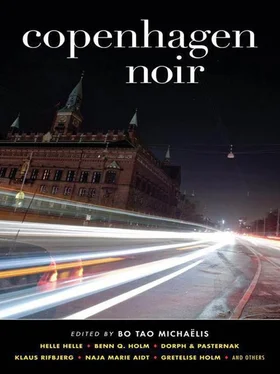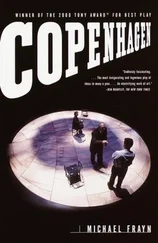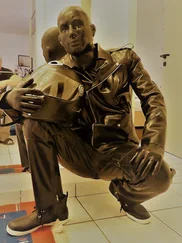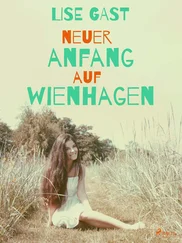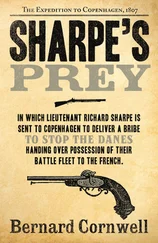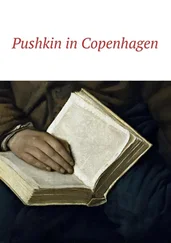At approximately the same time, the police were notified of a brothel customer found dead in Vesterbro. The two incidents weren’t immediately seen as being connected. Claire Winther received a call on her secret cell phone with the prepaid card. The conversation was short, something about her making sure that the bill would be paid.
Then she tossed the cell phone down one sewer drain and the card down another.
Toward evening the police showed up at the coast road villa. There was reason to believe that Claire’s husband was dead, and would she like to sit down.
Claire broke down when she identified the body, and she was offered emergency counseling, to which she said yes, please.
The tabloids all carried essentially the same story the next day: One of Denmark’s unknown billionaires, the Danish-American John Winther, had died in a sex game gone awry at a brothel in Vesterbro. In connection with his death, the police are looking for a small Spanish-speaking woman answering to the name of Michelle. She is possibly from South America. According to the brothel’s other prostitutes, the woman had recently been hired for a trial period and was servicing John Winther in the brothel’s S &M room, where the accident occurred. John Winther, 46, earned his fortune as an international developer. Recently he had bought up and developed sites in Russia and Brazil, where his company was presently involved in new subdivisions. The company owned many properties, both in and outside of Denmark.
The doctor had recommended to Claire that she check into a hotel to avoid the press storm, so she took a suite at D’Angleterre. The chairman of the board for John Winther Development, a prominent business lawyer, briefed her in the suite.
The company was in good shape, it could carry on as if nothing had happened, with one difference-she was now the majority stockholder.
“I’m going to spend the winter at our house in Florida, but I want to be kept informed of anything significant happening with the company, and to participate in all the board meetings,” she said.
The chairman nodded: “Naturally.”
Again she stood in the airport. Had just checked in her luggage, when someone tapped her on the shoulder. She turned and looked into a puffy, yeasty face with pores like craters.
“Bonnie!”
“You won’t forget us, right?”
“Of course not. You know me! But things need to settle down a bit. You understand that, don’t you?”
“Of course.”
They waved for as long as they could see each other.
SAVAGE CITY, CRUEL CITY
by Kristian Lundberg
Malmø
Translated from Swedish by Lone Thygesen Blecher
We must start at the very beginning.
Our story is simple. Just like life itself, it has no beginning and no end. We’re in Malmø, one of the larger suburbs of Copenhagen. Our story is about death. Death is at the core of everything. All stories about life and love contain a kernel of death.
Those who must die are getting ready. Those who must die prepare themselves. They read and write, breathe and watch. Those who must die set out on a journey. One showers to be clean, cleaning especially well to smell fresh. Another writes his will and testament-he has already made up his mind, days and weeks ago. A third measures out precisely as much of the drug necessary to make him disappear. The vein responds, his eyes cloud over, and in a matter of seconds the world is dark, black. Everything hangs in the balance for a moment, the living and the dead. We who are still here, and those who have given up.
From Västra Hamnen, this community within a community, one can see Copenhagen glitter like a string of diamonds in the night. The neighborhoods Nils Forsberg loved were the ones close to the discontinued ferry port, Nyhavn, home of the shabby beer taverns where a Swedish policeman was allowed to be exactly as intoxicated as he wanted to be.
* * *
We are all in the same space. All the invisible people. Everything that creates a city, with sounds and echoes, time passed and time to come, dreams and hopes, the unborn and those who are vanishing. We are all here. This is a story of guilt and redemption, of hope and despair.
We are human beings. We live, breathe, love. We are the ones who are going to die. You are the ones who are going to die. We are each others’ mirror images.
Those who are going to die look around the room, brush their hair, kiss their children, flush the toilet. They are the ones who know they are going to die, who long for death, for the great, soft darkness, the final hot flash, and then that final, last silence. And those who want to live, and who do all they can to stay here, who are frightened of the great darkness surrounding us. We are like each other, like day and night in the same city, alike as only human beings can be. Our story must start right there: in the city, with a description of death-the savage city, if you will. From a distance, and from far above, we might seem like insects, cockroaches, reptiles. We live off of each other. Out in the suburbs lights are coming on, slowly, one window at a time. It is morning, the first day for some, the last day for some, and in between we meet up. The commuter train shoots out between Malmø and Copenhagen, penetrating the morning like a flaming arrow.
Life.
All these breaths creating a chain of life, of time. We know we are being eaten by a hunger we can never escape, and yet we pretend we are not touched by it. That everything is as it should be. That time doesn’t count us in, that we are not worried by time. For every breath, for every day that lights up, we move closer and closer, and one day, just like this one, we stand face-to-face with our own destruction. Then what is it all worth? Nothing.
Death is no stranger who suddenly appears in your room. Death does not pull the curtains aside, revealing an empty backyard. Death does not appear like a shadow that grows darker and then black, like a bruise that deepens in color. Death is just another kind of light.
It happens that Nils Forsberg thinks this way. That on the other side of this light there may be another kind of light, a darker light which your eyes need time to get used to. On other days, most days, he doesn’t think at all, just wants to disappear, thinks that all that is left for him is to drink himself to death. At the center of the city the day deepens, the morning sings its city song. Everything we have will be taken from us, death can come like a thief in the night, he can come like an arrow shot from a distance.
Life.
Fragile as the delicate veins in fall leaves, strong as the stubborn pulse, strong as hope, stronger than love.
The water in the canal is still, translucent, and bottle-green. Every section of town seems to be linked by a bridge. Malmø is a town surrounded by water. The streetlights. Central Station. The taxi lines. The empty moments. Bicycle messengers steal a moment’s rest, between hope and despair. Everything is in movement, the city is breathing and living.
And here we all are, spinning, hopeless.
She who has to die this early morning is getting ready, planning the next few hours, trying to remember names, people, and places. She knows the time has come, that it has been here a long time. She quickly brushes her hair, removes a speck of food from between her front teeth. She knows how much she owes, knows she must pay. She cannot free herself of it. Her debt grows with every breath she takes, and yet there’s nothing new in this, she’s used to being hunted, she is prey. She no longer knows what it feels like not to be hunted.
The withdrawal distorts her thoughts. She’s not able to follow a straight line of thinking. There’s no beaten path she can follow along, or leave behind.
Читать дальше
